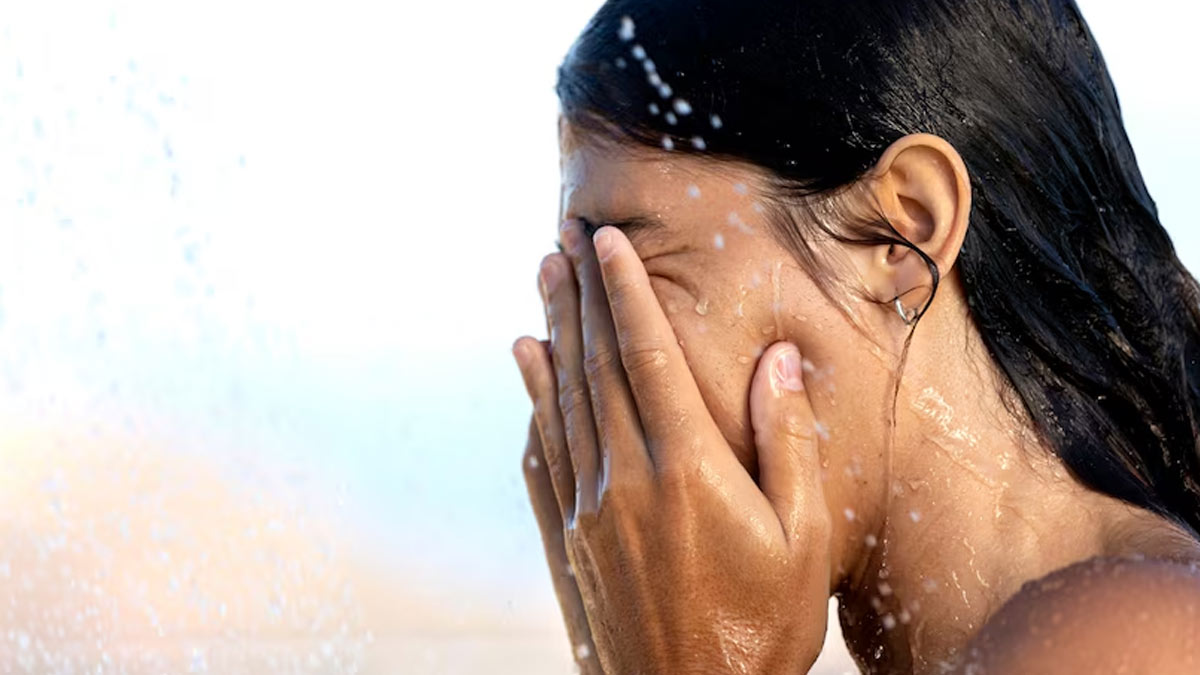
For many of us, washing our face is an essential part of the morning routine. To refresh yourself from the drowsy mood as you wake up from your deep sleep, washing your face can be a fresh start to the day. Along with washing their face, people have a habit of splashing water into their eyes to wash them. However, a common practice that might seem harmless, splashing tap water directly into your eyes could actually be more harmful than beneficial.
Table of Content:-
To understand why splashing water directly into eyes can be harmful and explore safer alternatives for eye hygiene, OnlyMyHealth interacted with Dr Rakhi Agarwal BAMS (Ayurveda) and MS ophthalmology, Shree Ram Eye Hospital, Shirpur, Maharashtra.
Explaining, Dr Agarwal said, “The tradition of splashing water in the eyes in the morning is very old. But this used to happen a long time ago when water used to be very pure and there was no impurity in the environment.” Adding, she said, “If it is advised to splash water in the eyes in the morning, then being an eye specialist, I completely refuse this opinion.”
Quality of Tap Water
First and foremost, the quality of tap water varies significantly depending on your location. Sharing her opinion, Dr Agarwal said, “In today's era, most of the houses get boring water and even if municipal water is available, no one can guarantee how pure it is.” Even in places where tap water is generally safe to drink, it may still contain impurities that can be harmful to your eyes. Tap water often contains chlorine, minerals, and other chemicals used in the treatment process. While these substances are present in small amounts and are safe for drinking, they can irritate the delicate tissues of your eyes.
Also read: Heatwave Red Alert: Protect Your Eyes With THESE Effective Tips

Microbial Contamination
Tap water is not sterile. It can harbour various microorganisms, including bacteria, viruses, and parasites. One of the most concerning is Acanthamoeba, a type of amoeba found in water and soil. According to studies, this microorganism can cause Acanthamoeba keratitis, a serious eye infection that can lead to vision impairment or even blindness. The infection is rare but is more likely to occur in individuals who expose their eyes to contaminated water.
Foreign Particles
Tap water can also contain small particles and sediments that may not be visible to the naked eye but can cause significant irritation if they get into the eyes. These particles can scratch the cornea, leading to discomfort and potential infections.
Better Alternatives

Given the potential risks, it's wise to consider safer alternatives for maintaining eye hygiene. Here are a few recommendations shared by Dr Agarwal for safer eye hygiene.
- If some alternative is sought to purify the eyes, then there are some eye drops with carboxymethylcellulose content which purify the eyes and also do not cause any harm to the eyes.
- You can use such eye drops on the advice of an eye specialist.
- The advantage of using eye drops is that the eye drops are completely sterile, so that no other impurities enter the eyes and the eyes also feel fresh.
Also read: These 5 Vitamins Are Essential To Protect Your Eyes Amid Heatwave
Consult an Eye Care Professional

If you frequently experience eye discomfort, it's best to consult an eye care professional. They can provide personalised advice and recommend appropriate treatments or hygiene practices.
Conclusion
While splashing tap water in your eyes might seem like a simple and harmless practice, it carries several risks that can compromise your eye health. Considering the potential for irritation, contamination, and chemical sensitivity, it’s advisable to opt for safer alternatives. Prioritising your eye health with the right hygiene practices can prevent discomfort and protect your vision in the long run. So next time you reach for the tap, remember to think twice and choose a safer method to refresh and cleanse your eyes.
Also watch this video
How we keep this article up to date:
We work with experts and keep a close eye on the latest in health and wellness. Whenever there is a new research or helpful information, we update our articles with accurate and useful advice.
Current Version